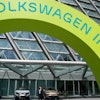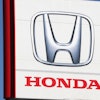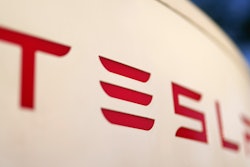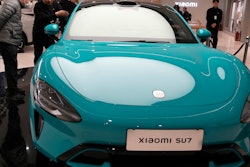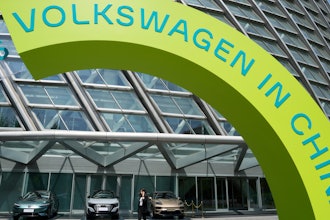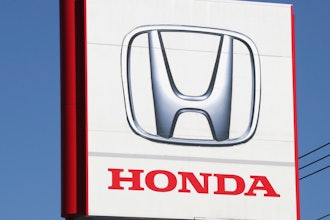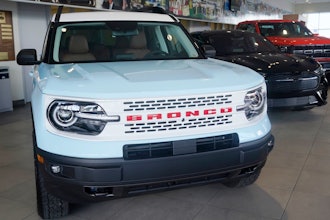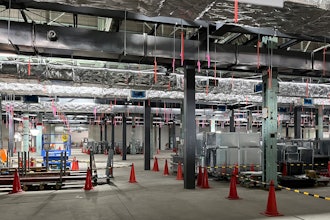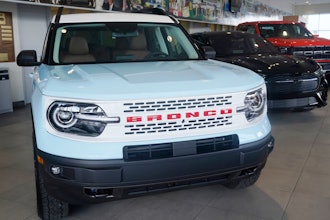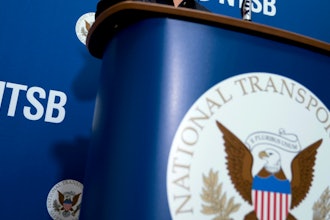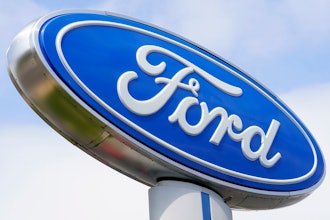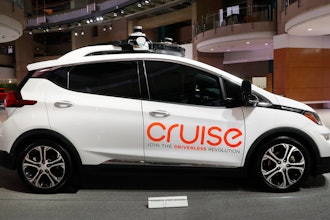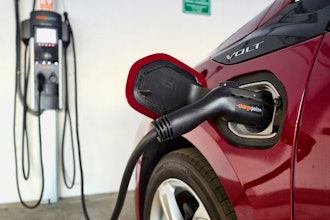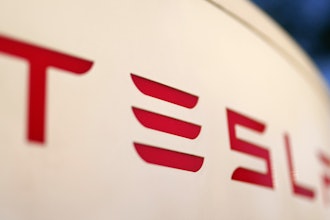
Amid the news that Chrysler was being merged with its Italian owners Fiat, and many still-unanswered questions about the future of what used to be one of America’s “Big 3” automakers, the company has doubled-down on its very U.S.-focused — and some say ironically xenophobic — advertising scheme with a commercial during Sunday's Super Bowl (video below).
To me, it seems like they’re compensating for something.
In the ad, Bob Dylan, an icon of American folk-sy perseverance, growls his way through a celebration of the American landscape, and the “creatures” that inhabit it, before a rather dubious handing-off non-automotive manufacturing to other nations. Beer to Germany? No, thanks — Belgium’s typically the better choice, and why would Chrysler shrug off the countless craft breweries popping up around the U.S. that employ thousands to do what they love and make some of the worlds best beer? Watches to the Swiss? Don’t tell that to Shinola, a Dallas-based company that is making watches in Detroit. Smartphone to Asia — again, the company is somehow forgetting about Motorola's efforts to assemble smartphones in Fort Worth, Texas, or even continued rumors that Apple will try making more of its devices locally.
The company’s new tagline is “America’s Import,” which is a slight derivation from the words that got many fired-up a few years ago: “Imported from Detroit.” The new one isn’t nearly as clever, and seems to only serve to maintain the confusion that many in-the-know have about the general status of the company as an American company or an Italian one simply manufacturing cars here.
It shouldn’t be too surprising that Chrysler is emphasizing its U.S.-ness strongly. Now that it’s merged with Fiat, there are still questions as to its future. Will its headquarters remain in Auburn Hills, Mich., or will it be moved to Italy? The former is the obvious and easier choice, but there’s no telling what CEO Sergio Marchionne has on his mind. He’s already said that his headquarters is an airplane, thanks to the number of trips he’s taken between Auburn Hills and Turin, Italy, where Fiat is headquartered. Maybe he prefers the winters in Italy, and makes the move in that direction.
So now that Chrysler has dismissed three other industries that all employ a significant number of manufacturing jobs in the U.S., Dylan shoots some pool with what I assume are Chrysler assembly workers and delivers the final line: “We will build your car.” Based on the latest numbers that are available on the percentage of “American” in any given car, the picture isn’t quite so clear.
In 2013, the National Highway Transportation Safety Administration updated its American Automobile Labeling Act Report, which lists the percentages of U.S.- or foreign-made content in each model of vehicle sold in the U.S. There are updated numbers for 2014, but, for one reason or another, those don’t include any vehicles from Chrysler or its brands, such as Jeep or Dodge.
These numbers reveal a five-way tie between the Dodge Grand Caravan (Chrysler), the Ford Expedition, the Chevy Express (GM), the GMC Savana (GM), and the Toyota Avalon. Each vehicle sits at 80 percent U.S.-made content, although the Dodge falters with a final assembly in Canada, and engines sourced from Mexico. Interestingly enough, the Toyota seems the most solidly U.S., made, with final assembly here, and major components — the engine and transmission — both being sourced here as well.
As one moves down the list, there is no arguing that Chrysler isn’t doing well for itself. Jeep vehicles are all a hair above 70 percent U.S. content, except for the Grand Cherokee, which is at 68 percent. Dodge also performs quite well. But is it good enough for a company that claims such a strong American heritage?
I’m not quite convinced. When Chrysler is going to go all-in on America, they can’t really take credit when parts are made, or vehicles are assembled, in “the Americas,” meaning Canada and Mexico. Yes, they’re neighbors and close allies, but it’s pretty clear Dylan wasn’t talking about the Mexican workers on the line that build a notable portion of the company’s big parts, or the Canadian workers who assemble them.
Being proud of a heritage is fine — great, even. I’m just glad that the Chrysler brand is still around, and the company isn’t going to be selling a “Fiat Grand Cherokee” anytime in the near future. But heritage only means so much, especially when buying many Hondas or Toyotas is just as “American” as the Chrysler. And now, they can’t even bank on the fact that their headquarters is in the U.S., so that profit stays here — the holding company is based in the U.K., and who knows what Fiat has planned for Auburn Hills?
For a company that wants to be so completely American, it’s amazing how far wide of the target they’ve fallen.
